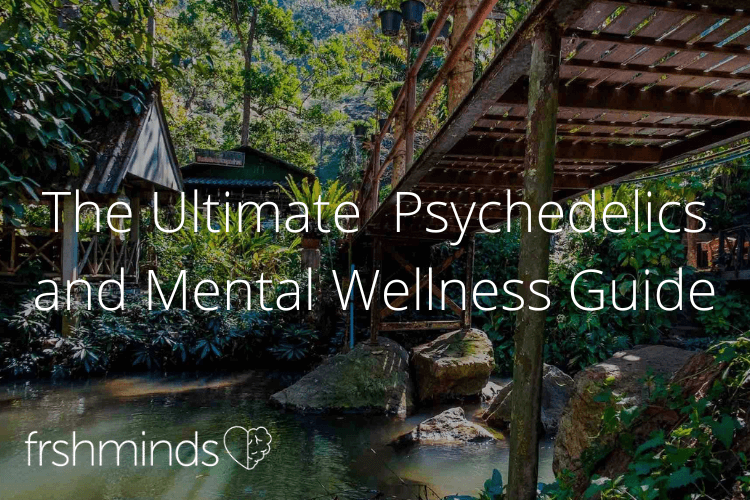
The Ultimate Psychedelics and Mental Wellness Guide
…Everything You Need To Know!
Welcome to the complete guide on psychedelics and mental wellness!
Looking to integrate psychoactives into your healing journey?
Then this is for you!
From their therapeutic potential to safety considerations, we will cover everything you need to know to make informed decisions about using psychedelics for better well-being.
How to Use Frshminds’ Psychedelics and Mental Wellness Guide
You can read Frshminds’ Psychedelics and Mental Wellness Guide from start to finish or use the links below to navigate to the individual sections.
Part 1: Psychoactives and depression: Let’s start by learning about the potential role of psychedelics in managing depression and anxiety
Part 2: Psychedelic Legal Landscape: Before rushing out to try psychedelics, it is important to understand the legality and enforcement attitudes towards them.
Part 3: Preparation Ceremony and Integration. Learn the importance of set and setting with the larger ceremony and integration process.
Part 4: Hallucinate Without Drugs. Learn how you can induce a hallucinatory state by controlling your breath.
Part 5: Talking Psychedelics. Have the opportunity to hear from leading figures in the psychedelics industry about the potential benefits of managing mental health with psychedelics.
More Frshminds Psychedelic Guides
Be sure to check out all of our guides
- The Ultimate Psilocybin Retreat Center Guide
- The Ultimate Ayahuasca Retreat Guide
- Frshminds’ Guide To Ketamine Clinics
Part 1: Here’s Everything You Need to Know About Treating Depression and Anxiety With Psychoactives
Depression and anxiety are pervasive mental health disorders.
To manage these conditions, antidepressants have been widely prescribed. But there is growing interest in exploring psychedelics’ potential for various reasons.
This section reviews the common questions regarding treating depression and anxiety with psychoactives.
The Prevalence of Depression
Depression is a common mental health condition that affects a significant part of the global population.
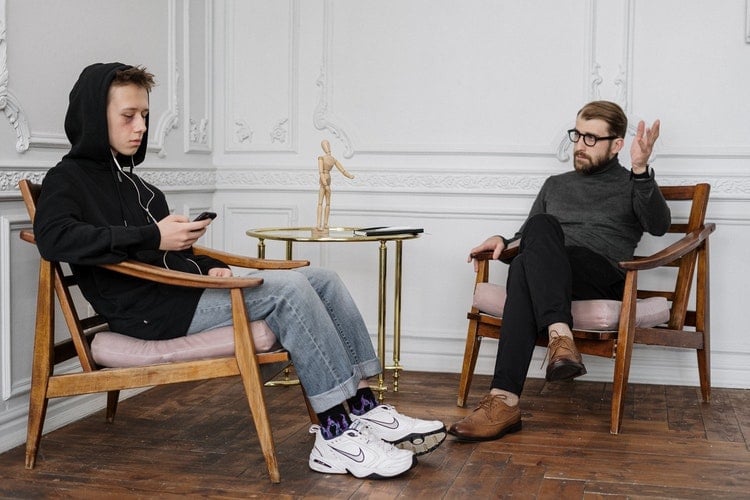
In the United States alone, an estimated 7.1% of adults (17.3 million) and 13.3% of adolescents (3.2 million) experience major depressive episodes.
The statistics reveal higher rates of depression among
- Females
- Young adults aged 18-25
- Individuals with mixed racial backgrounds.
These numbers highlight the need for effective treatment. They also shed light on the economic and social burdens associated with depression.
Some people find relief in using antidepressants, but many others don’t. For example, besides treatment-resistant depression, many stop their antidepressant treatment because of the unwanted side effects and lasting changes.
As if the long-term consequences of antidepressant use weren’t bad enough, the withdrawal can also be brutal.
Antidepressant Withdrawal: What Is It, How Do I Deal With It?
Stopping antidepressants can be challenging, with a little something called antidepressant discontinuation syndrome throwing some curveballs your way.

Say goodbye to those little mood-altering pills too abruptly, and your brain’s neurotransmitter levels might go haywire.
While it is not life-threatening, it is definitely a bumpy ride.
Here are a few tips to make this transition smoother:
- Slowly taper down the dosage
- Consider therapy as your emotional safety net
- Embrace a healthy lifestyle that includes good nutrition, quality sleep, and stress management
- Keep your doctor in the loop.
The History of Psychedelic Treatments for Mental Health Disorders
Psychedelic treatments for mental health disorders have a long history, dating back to ancient cultures.
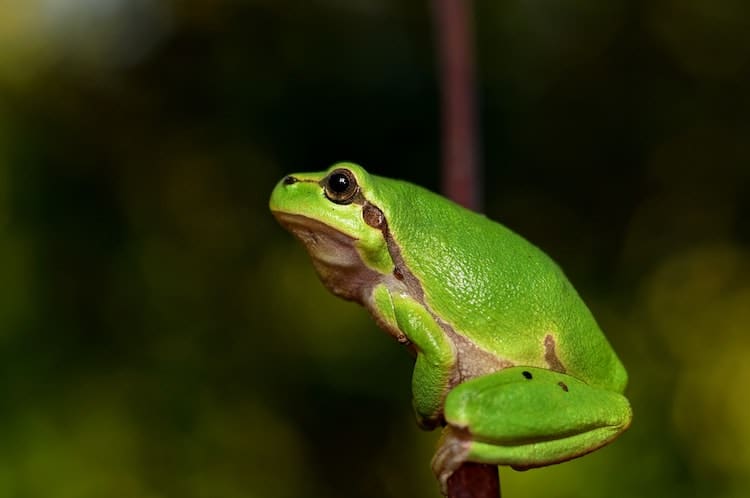
In the 1930s, Albert Hofmann’s happy accident kickstarted psychedelic research’s modern history.
Soon enough, the boundaries of psychedelic research were pushed, only to face opposition and criminalization during the “war on drugs” era.
Many scientists felt forced to abandon their psychedelic research, but just as many continued, albeit underground.
It is in part thanks to these researchers (as well as the numerous psychedelic advocates) that psychedelics have (luckily!) been making a comeback.
Seeing their potential, whether humanitarian or commercial, reputable research organizations and universities began investing in psychedelic studies again.
And they continue to show promising results in treating mental conditions and improving general well-being.
Meet Peggy: Microdosing for Work, Relationships, and Happiness
Psychedelics aren’t just reserved for treating mental health disorders. Psychedelics and mental wellness go hand in hand. And their transformative effects can enhance your overall well-being, even without a clinical diagnosis.
This is what so many people have been able to experience firsthand, including Peggy Van de Plassche, the Founder and CEO of Roar Growth.
Juggling a hectic life, Peggy embarked on a transformative microdosing journey.
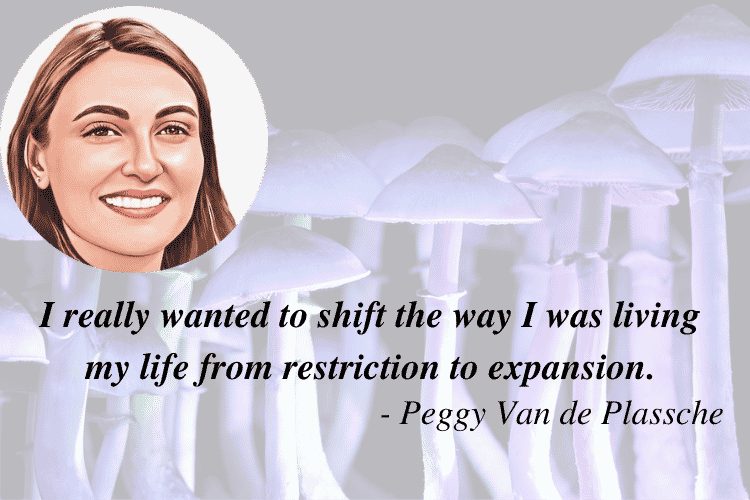
Despite not having had high expectations, she immediately discovered a newfound sense of relaxation, witnessing her anxiety and stress levels diminish significantly.
The personal growth she experienced was immense. And in a stunning display of creative productivity, she even wrote a 40K word novel in 10 days!
Stories like these highlight the potential benefits of integrating psychedelics into daily life beyond clinical settings.
Harm Reduction With Psychedelic Psychotherapist Danielle Herrera
Psychedelics are powerful substances.
Amidst the excitement, let’s not forget to approach them with caution.
Psychedelic psychotherapist Danielle Herrera sheds light on the multifaceted challenges that arise as psychedelics enter the mainstream.

Some examples include
- Stigma
- Spiritual bypassing
- The big 3Cd (cultural appropriation, commercialization, and commodification)
If we want a future involving psychedelics, prioritizing harm reduction is necessary.
Part 2: The Psychedelic Legal Landscape
Psychedelics hold great promise in treating mental health issues and improving general well-being. But their path towards acceptance and legality isn’t smooth.
The stigma, along with legal barriers and biases, present significant challenges.
In this section, we will delve into the ongoing efforts to overcome obstacles on the road to widespread recognition and acceptance.
Why Psychedelics Are Illegal
“Because the government says so,” would be the simple answer.

But while most psychedelics are illegal today, this wasn’t always the case.
So, when and why did things change?
Glossing over the so-called official legal reasoning, psychedelics being illegal largely results from political decisions and President Nixon’s “War on Drugs” campaign.
This campaign fabricated a “common” enemy to bolster Nixon’s re-election.
And from then on, it continued to be used as a political tool by nearly every president, regardless of party affiliation.
Psychedelic Activism in Canada
Amid the “psychedelic renaissance,” Canada is seeing a surge of interest in psychedelic research.
Psychedelics are still illegal. But the rise of psychedelic activism and public support challenges traditional drug control approaches.
Some Canadian cities like Vancouver and Toronto decriminalized possession under certain circumstances. This is generally seen as a stepping stone towards legalization.
Want to get involved with psychedelic activism in Canada and help make a difference?

Then, here are some organizations you could contact:
- Therapsil
- Multidisciplinary Association for Psychedelic Studies (MAPS) Canada
- Canadian Psychedelic Association
Drugs and Harm: Researching the Association
Too often, drug policies are put in place without a clear understanding of the harm substances do or don’t cause.
To help shine a light on this topic, the study, Drug harms in the UK: a multicriteria decision analysis, explored the overall harm profile of different drugs.

It revealed that alcohol had the highest overall harm score while psilocybin had the lowest. MDMA and LSD also scored lower than alcohol and tobacco.
These findings won’t be very surprising to most reading this Frshminds article.
However, the study’s lead investigator, David Nutt, was in severe disbelief. He voiced his objections and was asked to resign as Chair of the Advisory Council on the Misuse of Drugs.
Perhaps these findings and their aftermath can pave the way toward a future with drug policies based on research rather than political or moral biases?
Where are Psychedelics Decriminalized?
Today, Nixon’s War on Drugs campaign is widely seen as a failure. Instead of reducing drug use, it mostly led to mass incarceration.
Keeping this in mind, several U.S. cities and states have taken steps to decriminalize psychedelics. While not fully legal yet, this, at least, lowers the priority of arresting people for possession and cultivation.
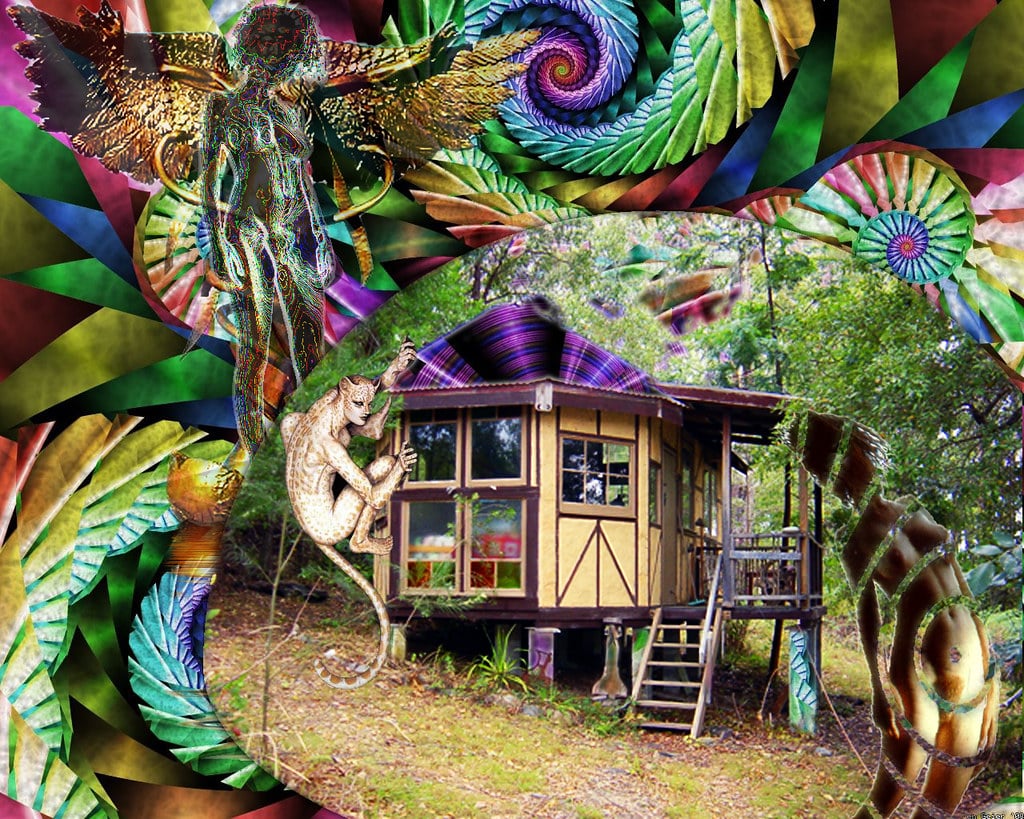
Here is a list of U.S. places where psychedelics are decriminalized:
- Denver, Colorado (Psilocybin mushrooms)
- Oakland & Santa Cruz, California (All naturally occurring psychedelic plants)
- Ann Arbor, Michigan (Psychedelic plants and fungi)
- Oregon (Magic mushrooms – decriminalized and legalized for therapeutic and compassionate use)
- Somerville, Cambridge and Northampton, Massachusetts (Psychedelics)
Many other cities have gotten close to decriminalizing psychedelics or where there is popular support or proposals in favor of their decriminalization.
Decriminalization of Psychedelics in the United States
After Nixon’s desperate efforts to ban psychedelics, why are so many states now reevaluating this decision?
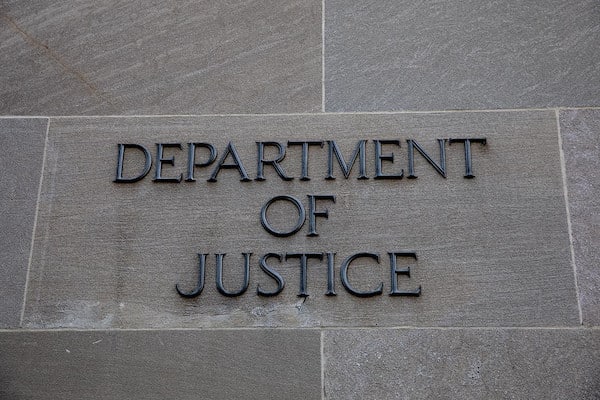
Let’s go over some milestones in the decriminalization of psychedelics in the United States:
- 2015 – New Mexico: Court ruling declared growing psilocybin mushrooms for personal use not considered “manufacturing of a controlled substance.”
- 2019 – Denver, Colorado: First city to decriminalize psilocybin.
- 2019-2020 – Oakland and Santa Cruz, California: Decriminalization of psilocybin, with dramatic witness testimony leading the way.
- 2020 – Ann Arbor, Michigan: City council voted to reduce the prosecution of anyone involved with entheogenic plants, making it the lowest policing priority.
- 2020 – Oregon: First U.S. state to achieve complete psilocybin decriminalization and legalization for therapeutic and compassionate use.
- 2020 – Washington D.C.: Passed a decriminalization act covering substances like magic mushrooms, ayahuasca, and mescaline. Arrests for their use became the lowest policing priority.
- 2021 – Various counties: Several counties passed decriminalization acts covering entheogenic plants.
The Decriminalization of Psychedelics in Canada
In Canada, activities related to psychedelics, including sale, possession, and production, are considered illegal under the Controlled Drugs and Substances Act (CDSA) unless authorized by Health Canada through licenses or exemptions.

Similar to the US, we have witnessed a number of advances in the decriminalization of psychedelics in Canada:
- 2019 – A Canadian lawmaker introduced a bill to decriminalize the possession of all illicit drugs, though the bill expired before the election.
- 2019 – To address addiction issues, the Standing Committee on Health supported decriminalizing simple possession of all drugs.
- 2020 – A petition calling for psychedelic decriminalization received many signatures. Government officials responded by highlighting existing exemptions for some individuals to consume substances legally, despite their illegal status for most Canadians. They also emphasized the need for further research before making any reforms.
Part 3: Preparation – Ceremony and Integration
Psychedelics can be great for mental wellness but aren’t given to patients willy-nilly.
Each aspect contributes to the journey’s impact from the proper mindset (set) to the physical environment (setting).
However, the integration that follows afterward matters just as much.
What are psychedelics, and where can I find them?
You probably would not guess it when looking at their (il)legal status, but most psychedelics are naturally occurring substances that could be found in your garden.

Well, depending on where you live that is…
For example,
- DMT can be sourced from certain Central and South American trees,
- mescaline comes from certain cacti species,
- and psilocybin mushrooms grow in various North, Central, or South American forests.
And let’s not forget about LSD! While you won’t find an acid blotter in the wild, lysergic acid diethylamide (aka LSD) is derived from a fungus that grows on rye and other grains.
Now, before you go on a psychedelic scavenger hunt, remember that many psychedelic plants and psilocybin mushroom species are easily confused with poisonous counterparts.
So, never go foraging without an experienced guide. Safety first.
Set and Setting
While the terms set and setting were popularized by Timothy Leary in the 60s, the concept has a longer history.
But what do these two words mean? And why are they so important?

Set
‘Set’ comes from mindset. It refers to the mental state someone is in during the psychedelic experience.
You have both the long-term set and the immediate set. One refers to your personality, worldview, beliefs, etc., whereas the other refers to your current expectations and attitudes.
You generally won’t change your long-term set with the flick of a wrist, but there are some things you can do to foster a positive immediate set:
- Grounding
- Surrendering
- Intention-setting
Setting
‘Setting’ refers to the physical environment.
This could be your bedroom or garden, a clinical setting, a ceremonial space, or a music festival.
Comforting elements like pillows, blankets, art, and music can positively influence the experience.
The social environment plays a role too. For example, while a crowded music festival might be fun for some, it can be overwhelming and nightmarish for others.
Integration
The psychedelic journey doesn’t end when the effects wear off.
Integration is the important process of weaving our experiences and insights into our lives. By doing so, we unlock the true power of psychedelics on our physical and mental wellness.
History of Psychedelic Integration Therapy
Have you ever had a mind-altering psychedelic experience that left you disoriented or struggling to make sense of the world? Psychedelic integration therapy is designed precisely for that purpose.

Although Psychedelic Integration Therapy is a relatively recent development, its roots can be traced back to the 1950s when Psychedelic-Assisted Psychotherapy first emerged.
Believing psychedelics could treat mental health conditions, researchers offered patients structured psychedelic sessions.
One of the challenges, however, was that participants needed thorough psychotherapy preparation and a licensed therapist to help them understand their psychedelic journeys.
That’s how psychedelic integration and aftercare therapy were born as they satisfy this vital need for understanding and growth.
What is a Psychedelic Integration Therapist?
As mentioned above, after a profound psychedelic trip, people can find it challenging to reintegrate into daily life. Integration therapists are there to help them understand and incorporate these insights into their everyday existence.
Simply put, a psychedelic integration therapist provides a safe and non-judgmental space to clarify intentions and process the psychedelic experience.
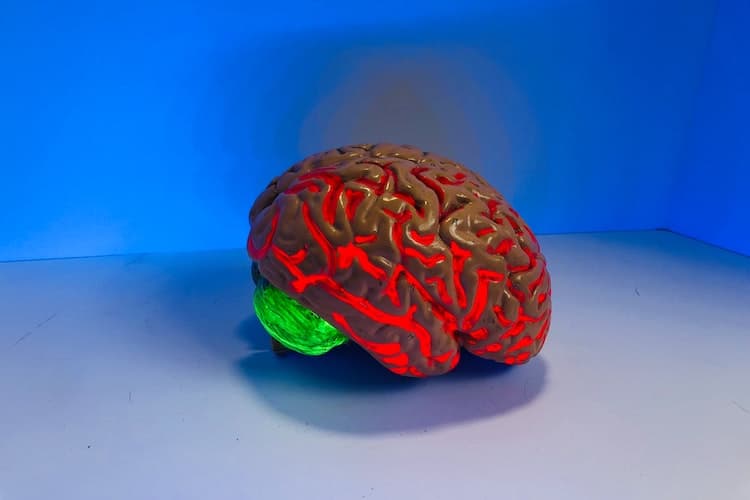
Generally speaking, psychedelic integration therapists don’t provide the drugs. Rather, they prepare you for the journey (pre-care) and support you in making sense of it all afterward (post-care).
Personal Stories: Talking Psychedelic Integration Therapy
Ana Holub: Forgiveness, Addiction Recovery and Psychedelic Integration
Ana Holub, a Psychedelic Integration Coach and Forgiveness Counselor from Ashland, Oregon, emphasizes the crucial role of integration. Psychedelics can lead to profound realizations, but the benefits may be lost when we skip properly integrating them.
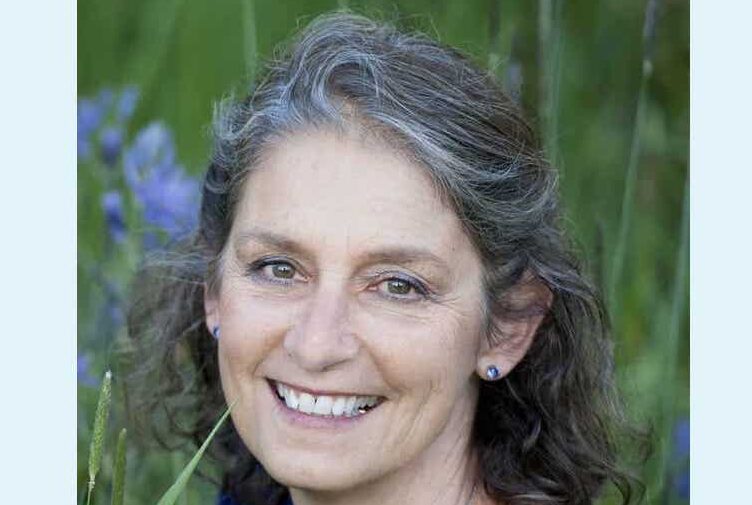
Ana states, “Integration is where the healing of the medicine journey gets a chance to take root.”
Despite challenges, like lack of understanding from conventional healthcare providers and commercial interests from big corporations, she believes investing time and effort into the psychedelic renaissance is worth it.
Psychedelic Therapist Scott Ross’ Insights on Integration Therapy
Scott Ross, a Psychedelic Integration Therapist based in Seattle, Washington, highlights the transformative potential of psychedelic medicines in facing and healing our inner demons.
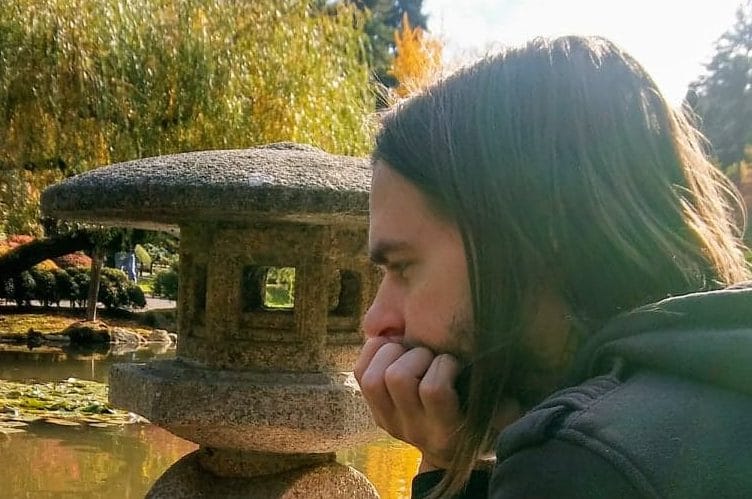
Through psychedelic integration, he has witnessed remarkable changes in patients, such as:
- Freedom from fear of death
- Newfound love and connection
- Overcoming suicidal thoughts
- Breaking free from religious or atheistic dogmatism
Like Ana Holoub, Scott acknowledges potential challenges, such as the profit-driven focus of pharmaceutical and insurance companies which often neglect patient well-being.
Psychedelic Therapist Lynne Nardizzi, LCSW, Talks Psychedelic Integration
When Lynne Nardizzi healed from her autoimmune disease thanks to a transformative psychedelic journey in the Amazon jungle, she knew she had to share this gift with others.
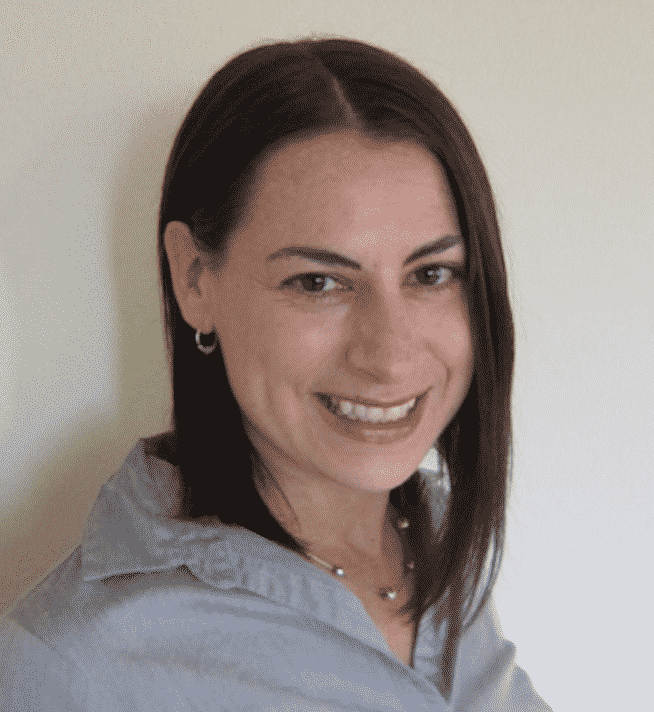
As a Licensed Clinical Social Worker and Psychedelic Integration Therapist based in Santa Fe, she now offers psychotherapy to help clients understand and integrate their psychedelic, spiritual, or near-death experiences.
Through her work, Lynne has seen first-hand how psychedelic integration therapy fosters a deeper connection with oneself, a clearer sense of purpose, and a heightened level of consciousness.
Despite the positive outcomes, she also emphasizes:
- The need for open discussions about the risks associated with psychedelics.
- The significance of set and setting.
- The importance of having an experienced guide or shaman.
Meet Gerard Artesona: Psychedelic Integration Therapist and Spiritual Guide
Gerard Artesona, a psychedelic integration therapist based in Oakland, California, aims to bridge Western psychology and psychedelic therapy, particularly entheogenic rituals, to support those dealing with psychological distress.
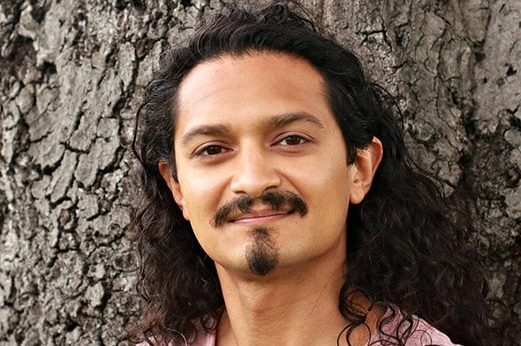
His key advice is that there is no magic pill or quick fix. Psychedelics can boost mental wellness and aid progress and momentum, but true growth requires ongoing effort and dedication.
This also links up with one of his main challenges in integrating psychedelic-based therapies into mainstream healthcare.
Insurance companies tend only to cover a few sessions with the assumption that everything will be fixed quickly. Because psychedelics are known for their ability to create rapid and significant breakthroughs, insurance companies might exploit this to their advantage, undermining the profound nature of the therapeutic process.
Rima Danielle Jomaa: Psychedelic Integration Therapist and Mindfulness Expert
Rima Danielle Jomaa, a psychedelic integration therapist in Los Angeles, has been involved in psychology and psychedelic-assisted therapy from a young age — even before formal integration work was widely recognized.
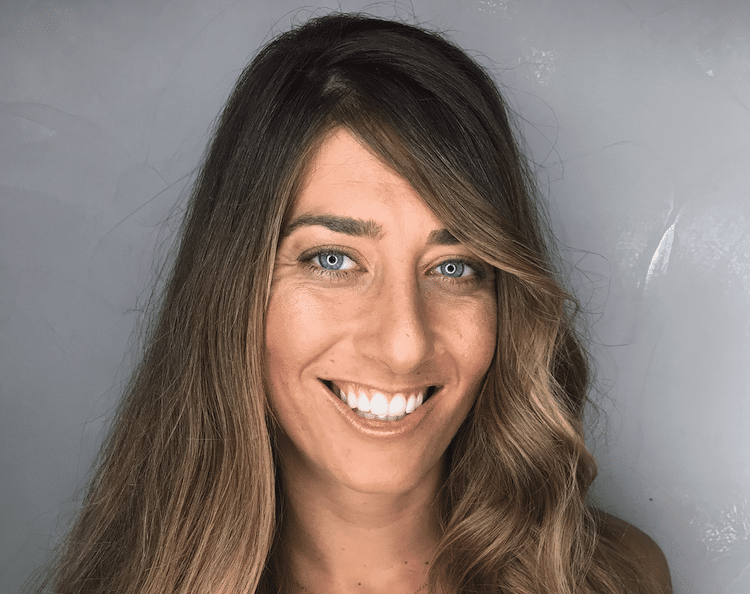
Through psychedelic integration therapy, she has observed impressive changes in clients, such as:
- Gaining new perspectives on reality
- Letting go of unhelpful stories and attachments
- Cultivating self-love and compassion
For Rima Danielle, the integration work is more powerful than the psychedelic experiences themselves, as it helps people apply their insights and create positive changes in their lives.
Introducing Brian Murphy: Psychedelic and Psychospiritual Integration Therapist
Brian Murphy is a psychedelic integration therapist in New York City who offers healing and support to those navigating addiction and psycho-spiritual growth.
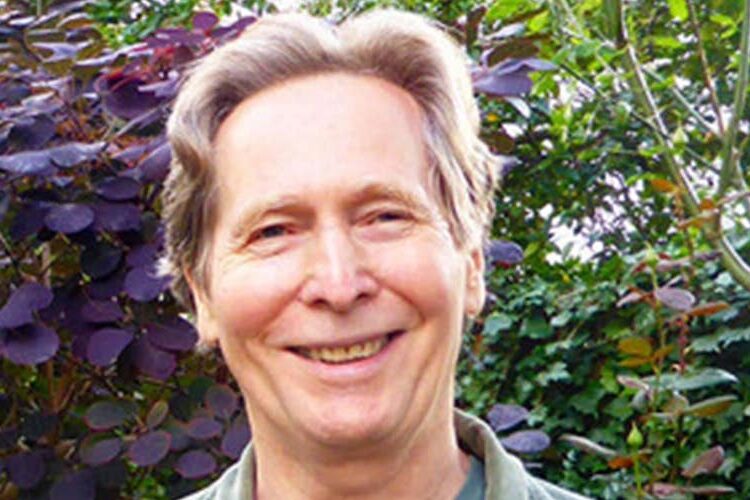
His advice for first-time or seasoned journeyers?
- Approach the experience with openness
- Drop expectations
- Hold intentions lightly
Brian has spotted profound transformations through psychedelics, where people find freedom, release old burdens, and understand the power of love.
While society is finally moving towards a more enlightened approach, in the past, harsh drug laws disproportionately affected marginalized communities.
Today, one of Brian’s worries is that these transformative psychedelic experiences might become exclusive to the wealthy, leaving the poor behind once again, despite the historical role of these medicines in traditional healing practices.
Meet Annie Dolle: Psychedelic Integration Therapist
For over 15 years, Annie Dolle, a Portland psychedelic integration therapist, has been helping others explore their personal psychedelic experiences.
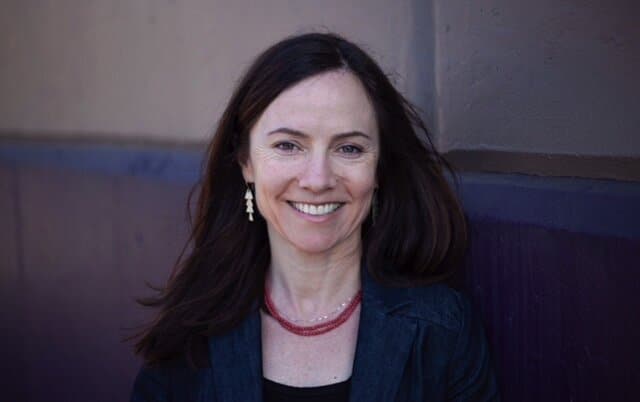
Even before the term “integration” gained popularity, she assisted clients who shared their cathartic insights during therapy.
Witnessing changes in perception and mood, she noticed how these experiences sparked curiosity and deep self-exploration. This greatly enriched her clients’ therapeutic process.
Annie firmly believes those interested in psychedelic exploration deserve safe and informed support. And she highlights the importance of preparation and integration.
While she has seen profound transformations, she also knows that everyone should thoroughly understand the potential benefits and risks.
After all, not all psychedelic experiences are easy or “good.”
Catherine Auman: Combining Psychedelic Integration with Transpersonal Therapy
By combining psychedelic integration with her training in transpersonal therapy, Catherine Auman, a psychedelic integration therapist based in Los Angeles, brings a unique approach to her practice.
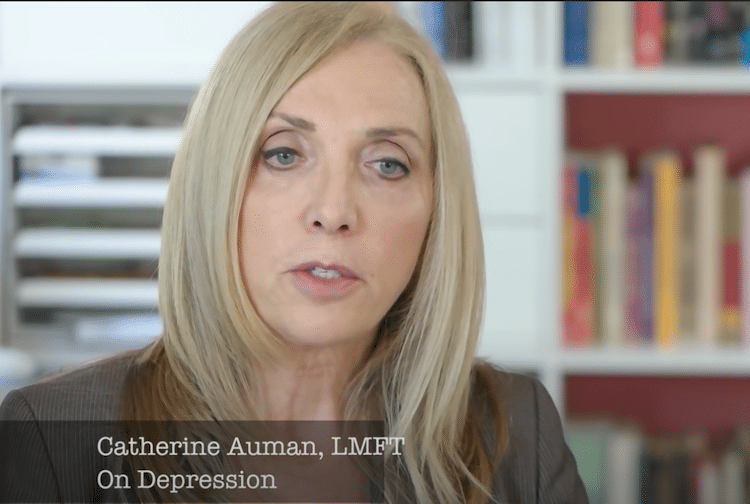
With experience dating back to the 1980s, she has observed life-changing shifts in patients who have integrated psychedelics into their mental wellness journey, particularly regarding increased compassion and a more open heart.
Catherine emphasizes that psychedelics are not a one-size-fits-all solution and should not replace therapy.
In fact, the main challenge she sees for further integration of psychedelic-based therapies is the misconception that psychedelics offer instant cures when in reality, personal and spiritual growth are lifelong processes.
Psychedelic Integration Insights with Dr. Eric Sienknecht of the Polaris Insight Center in San Francisco
Dr. Eric Sienknecht is a psychedelic integration therapist in San Francisco with extensive experience working with psychedelics, including ketamine and MDMA-assisted psychotherapy.
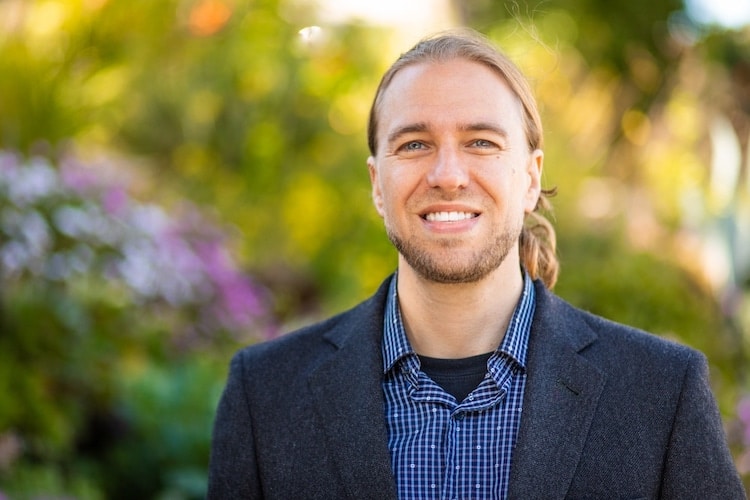
His interest in providing psychedelic integration stems from two things:
- People seeking support around psychedelic experiences they were having trouble making sense of.
- His own profound experiences with psychedelic medicines, where he sometimes struggled to integrate them in the past.
Offering a safe space for people to share and explore these novel experiences became a natural but significant step in Dr. Sienknecht’s development as a clinician.
He advises getting support from experienced individuals for the integration process, even if it doesn’t necessarily happen in the therapy room.
If the integration provider has never used psychedelics, they should, at least, have experience with altered states of consciousness. This could be through practices like Holotropic Breathwork, meditation retreats, or floatation tanks. Ideally, they should also have professional training.
Music, Art and Psychedelic Integration with Iven Simonetti
To Vancouver-based psychedelic integration therapist, Iven Simonetti, play is medicine.
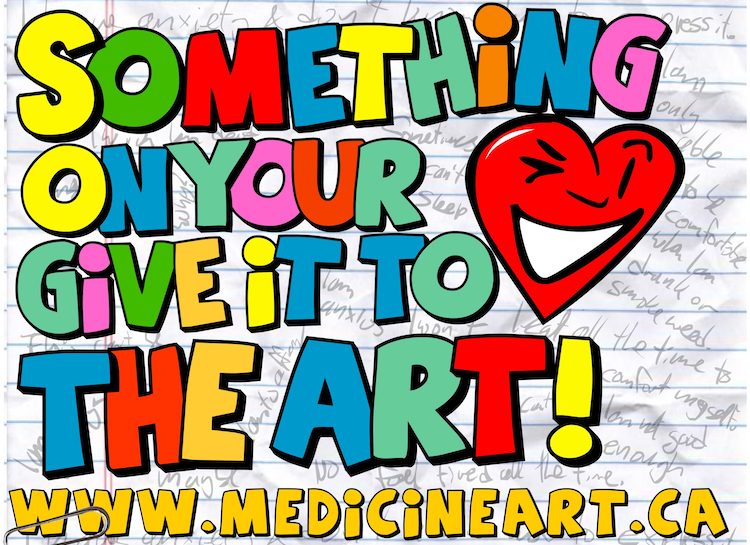
What makes Iven’s approach unique is his strong emphasis on using art and play in his integration work.
Through psychedelic integration, he has seen clients experience profound changes, like:
- Taking risks
- Connecting with nature
- Rediscovering themselves
- Finding joy in life
- Gaining better control over their emotions
However, recognizing that integration often involves addressing childhood trauma and old wounds, he understands that psychedelic medicines are not suitable for everyone.
Like many other integration therapists mentioned above, Iven believes that a major challenge lies in the profit-driven approach of the healthcare system. Medication is prioritized over genuine healing, and the mainstream healthcare system might not see enough profit in supporting holistic healing.
Perspectives on Psychedelic Integration with Gregory Wells, Ph.D
Gregory Wells is a psychedelic integration therapist based in San Francisco and Co-Clinical Investigator & Therapist in the MAPS Clinical Program for MDMA-Assisted Therapy.
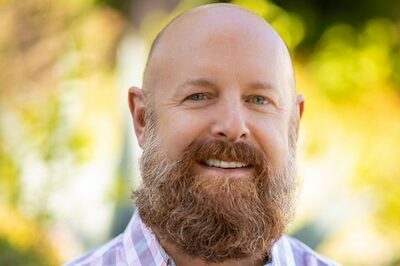
As a licensed clinician who has gone through his challenging journeys, he understands the importance of integration support.
He notes that psychedelics are currently revolutionizing the field of psychiatry. In time, he hopes for a shift away from the conventional pharmaceutical approach.
What if being prescribed a pill for the rest of our lives, we had actual cures and effective treatments?
For example, one of the most remarkable transformations Gregory has seen is patients being cured of PTSD. He describes it as witnessing a rebirth.
Meet Derek de Braga: Psychedelic Integration Therapist
Derek de Braga is a Psychedelic Integration Therapist based in Montréal. Having previously worked with populations dealing with substance use, reading up on psychedelic studies validated Dereks’ beliefs about psychedelics’ healing potential.

This made him more receptive to conversations with clients already using or curious about psychedelics.
Their stories inspired him to provide a safe and judgment-free space in which they could explore the deeper meaning of their journeys.
For Derek, integration is the key. Understanding that not every journey leads to a transformative experience, he offers unwavering support, no matter what arises from the psychedelic trip.
Psychedelic Integration Therapist: Bruce Sanguin
When Bruce Sanguin, a psychedelic integration counsellor based in British Columbia, realized that he was not yet emotionally and psychologically ready for a profoundly intimate relationship, he embarked on his healing journey.
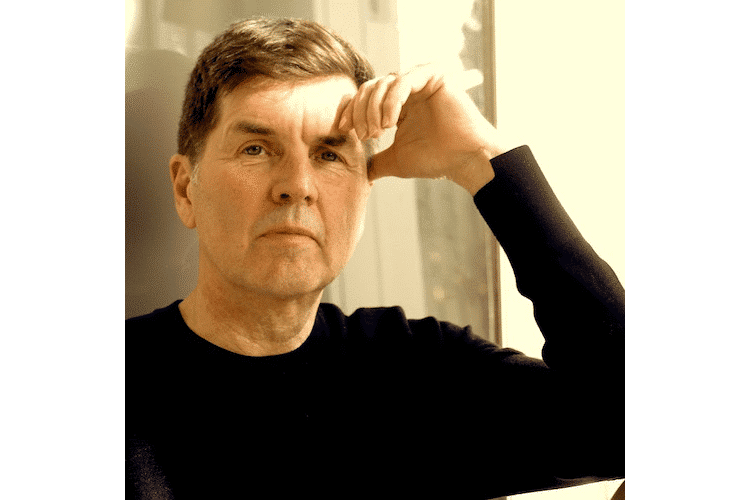
His latest book “Dismantled: How Love and Psychedelics Broke a Clergyman Apart and Put Him Back Together” chronicles his transformation with the help of psychedelics and psychotherapy.
Bruce sees psychedelics as not an end in themselves but as powerful aids in revealing deep insights.
While some of his clients experience dramatic transformations, Bruce emphasizes that most healing occurs gradually. Therapy, with or without psychedelics, involves bringing the unconscious into conscious awareness and discovering self-love, despite our negative beliefs formed in the past.
Regarding the future of psychedelic therapy, he advocates for a return to indigenous practices, where psychedelics were used to connect with the sacred, address trauma, and nurture love.
Meet June Jackson: New Orleans Psychedelic Integration Specialist and Life Coach
June Jackson is a Psychedelic Integration Specialist and Certified Life Coach based in New Orleans. She supports people with various concerns, including spiritual awakenings, trauma/PTSD, anxiety, and shadow work.
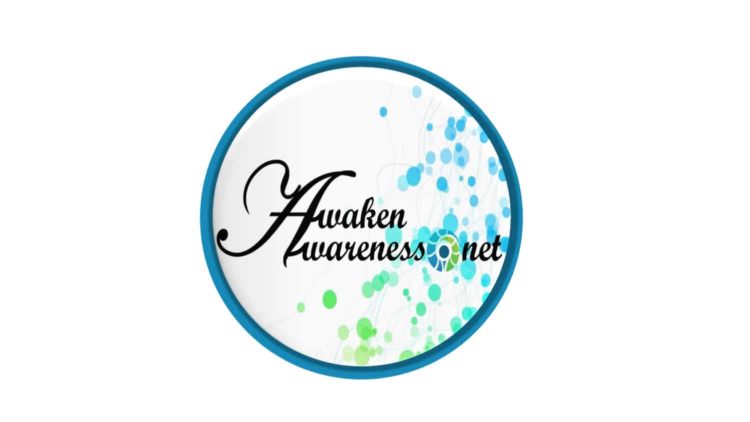
Her interest in providing psychedelic integration services grew from her spiritual journey and realizing the transformative power of mystical experiences.
Through her work, she discovered that psychedelic medicines can evoke profound mystical experiences. When properly integrated, these can positively impact daily life, providing wisdom and clarity.
From experience, she knows that the psychedelic experience can be one of the most profound and transformative experiences of one’s life.
Part 4: Hallucinate Without Drugs
While the power of psychedelics for better physical and mental wellness is becoming clear, they may not suit everyone due to individual reasons.
Luckily, non-psychoactive practices can also be powerful agents of change and healing.
How to Hallucinate Without Drugs
Before we delve into improving our mental wellness without psychedelics, let’s explore whether it is possible to learn how to hallucinate without drugs. When you hallucinate, you see, hear, smell, and taste things that (supposedly) aren’t present in reality. These altered perceptions can include seeing abstract shapes, flashes of light, and even having mystical encounters.
While psychedelics are a surefire way to evoke a mind-bending trip, they aren’t the only options.
Here are six possible psychedelic-free approaches:
- Holotropic breathwork (HB)
- Sensory deprivation
- Anechoic Chamber
- Kundalini Activation Process
- Eye-gazing (with yourself or others)
- Hypnosis (or hypnotherapy)
We’ll cover that first one (Holtropic Breathwork) below.
Holotropic Breathwork
Holotropic breathwork was created in the 1970s by Dr. Stanislav Grof and his wife, Christina Grof. Due to Nixon’s War on Drugs, they wanted to create a legal alternative to alter one’s state of consciousness.
“Holotropic” means “moving towards wholeness.” It originates from the Greek words “holos” (whole) and “trepein” (moving toward something).
Sounds good? Then let’s look at what this healing modality can do for you.
Holotropic Breathwork Benefits
Many call holotropic breathwork ‘transformational breathing’ or ‘rebirthing therapy,’ but what makes it so special?
HB’s magic lies in the incredible power of our breath, acting as a bridge between our autonomous (unconscious) and voluntary (conscious) processes within our bodies and brains.
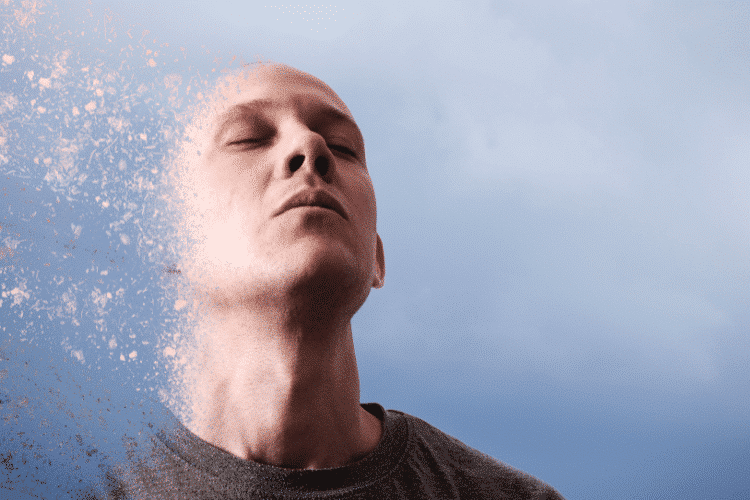
This unique connection allows breathwork to unleash results that might have seemed unreachable with other treatments.
Holotropic breathwork benefits include the following:
- Reduced stiffness and tension (physical)
- Better mood and outlook on life (emotional)
- Renewed sense of purpose and a deeper connection to self (spiritual)
How To Do Holotropic Breathwork
To know how to do HB, we must first review what is “supposed” to happen during a session.
The idea behind Holotropic Breathwork is simple: you reduce oxygen in your lungs through deep breaths until you reach an altered state of consciousness.
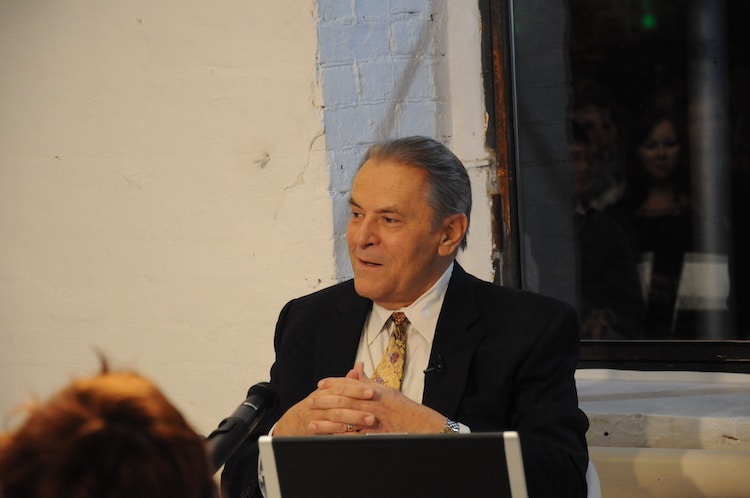
Still not entirely clear? Then let’s go over some basics on how to do holotropic breathwork:
- Full deep breaths: Breathe deeply into the “bottom” of your lungs, allowing your belly to expand (aka “diaphragm breathing”).
- Continuous, “circular” breathing: Breathe without pauses. Inhale until your lungs are almost full, then exhale. Maintain this circular breath pattern throughout the session.
- Faster than normal: Increase your pace slightly, but avoid straining your body. Stay relaxed, allowing the breath to flow effortlessly for an extended period.
- Duration: A session might last two to three hours but can also be shorter. After 15 or 20 minutes, your body tends to settle into the breathwork, and you won’t have to consciously think about it anymore.
- Mouth vs nose breathing: HB is flexible. Whether you inhale through your mouth, exhale through your nose, or mix it up, just remember to always keep your breath flowing.
Aside from these guidelines, there is no strict rulebook. Let things unfold, move freely, and make sounds if it feels right.
This is your unique journey.
Is Holotropic Breathing Safe?
Sometimes the question gets asked whether holotropic breathwork is safe?
While it generally is, just like any intense activity, holotropic breathwork can strain your body, especially the cardiovascular and respiratory systems. So, if you have underlying health conditions, it is best to consult a professional beforehand.
Some worry about potential oxygen starvation (hypoxia) due to increased CO2. Although excess levels of CO2 can be harmful, you don’t reach these levels when you perform Holotropic Breathwork correctly.
For the safest experience, we recommend working with an experienced facilitator.
Setting Your Space For Holotropic Breathwork
Remember the importance of set and setting during a psychedelic journey? Well, it is not any different with a psychedelic-free trip.
Holotropic breathwork can put you in a sensitive state, and it is known to bring up intense emotions. This can be healing but also challenging.
To make things easier, gear your surroundings toward a positive experience.
Here are some things to consider when setting your space for Holotropic Breathwork:
- Low-level lighting: Even if you wear an eye mask during your session (recommended!), you don’t want blinding brightness after such an intense internal journey.
- Moderate temperature: Aim for a cozy 18-21 degrees Celsius, and bring a blanket or a scarf if you get cold.
- General Comfort: Use yoga mats and cushions for maximum comfort. Got a sensitive back or joints? Then cushions and props come to the rescue.
- Music: Sound matters. As everyone has their taste, there is no “one size fits all” approach. Pro tip: To avoid interruptions, download your playlist on an old-school mp3 player (like an iPod), if possible.
- Smells: Nobody wants to breathe heavily in a room filled with overpowering smells, so avoid intense fragrances and shower beforehand.
- Stay hydrated: After all that heavy breathing, you might get thirsty. Make sure to bring a water bottle that can be closed.
With this well-prepared space, you’re ready to breathe deeply and embrace the experience. Happy breathworking!
Holotropic Breathwork Training
Looking to become a certified Holotropic Breathwork practitioner? Well, you have a couple of options.
Traditionally, Grof Transpersonal Training (GTT) has offered training. However, after the Grof founders partnered with Tav & Cary Sparks, they focused more on lectures and education, leaving Tav and Cary to handle workshops and training courses.
Today, the Grofs have stepped away entirely and established a new school. So, if you hope to learn directly from Stanislav Grof, you must explore his newer courses.
To become trained in GTT Holotropic Breathwork, you have two options:
- Practitioner (facilitator)
- Educational.
Both offer valuable knowledge, but only practitioners can lead independent sessions.
Holotropic Breathwork Youtube Resources
Whether you are a seasoned Holotropic Breathwork enthusiast or just curious to learn more before your first session, our Holotropic Breathwork YouTube resources guide has you covered.
From beginners to advanced holotropic breathers, we have compiled a list of music playlists you can use.
Since HB is trademarked, finding official classes or guided sessions online is tricky. However, we have added other forms of guided breathwork, like the “A 1 Hour Guided Breath & Sound Journey” and insightful videos where HB facilitators share their expertise.
Part 5: Talking Psychedelics
By now, it’s clear that psychedelics can be great for our physical, emotional, and mental wellness.
But don’t just take our word for it! Frshminds has interviewed folks from across the psychedelic universe — business leaders, infusion therapists, retreat owners, lawyers, academics, you name it!
“Talking Psychedelics” takes a deep dive into the driving forces shaping the psychedelic industry.
Talking Psychedelics: Dick Simon of Sensorium Therapeutics
Dick Simon, the co-founder of Sensorium Therapeutics, is dedicated to destigmatizing psychedelics. His platform explores the potential of numerous plants and fungi, aiming to provide large-scale treatment without needing therapists.
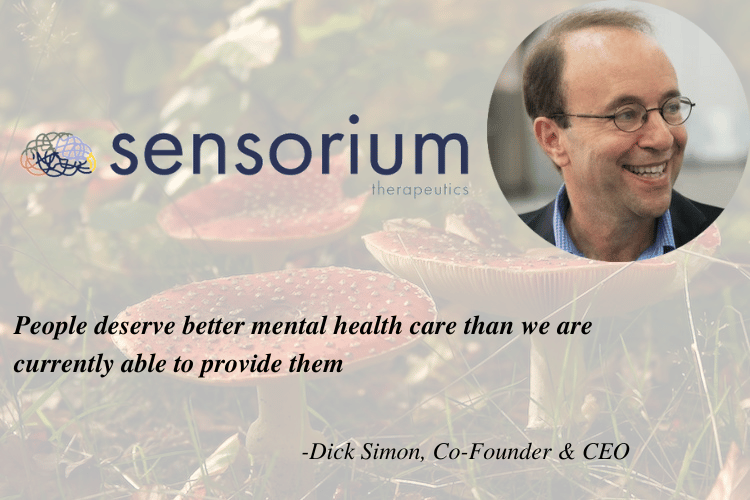
Over the years, Dick collaborated with organizations like MAPS (Multidisciplinary Association for Psychedelic Studies) and Massachusetts General Hospital’s Center for the Neuroscience of Psychedelics.
Aside from focusing on reducing the cost of psychedelic medicine, Dick also emphasizes the importance of avoiding what he considers the most dangerous four-letter word: “them.”
He advocates for unity and urges people to concentrate on common goals. Rather than dividing into separate factions, he hopes to expand beyond the current psychedelic bubble so that broader groups of people can understand the possible benefits.
Talking Psychedelics: Psychedelic Assisted Therapy At Home
Meet Hillary Lin, MD, and Felix Li, the visionary founders of Curio. Operating in Texas, New York, California, and Michigan, Curio brings psychedelic-assisted therapy to your home.
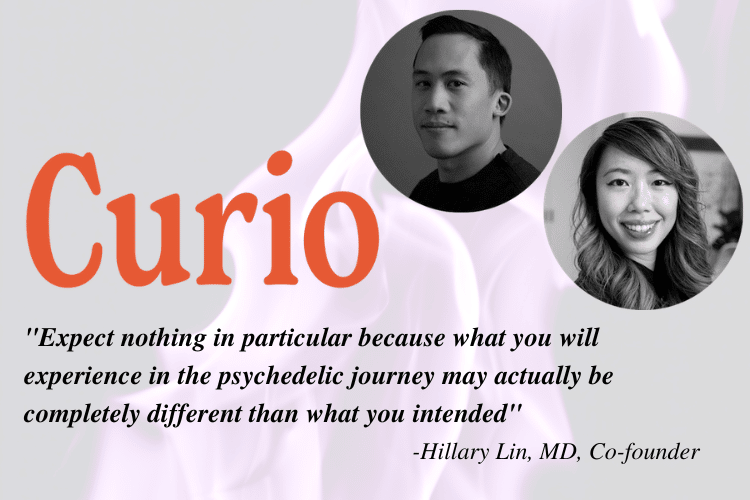
With their healthcare backgrounds, Hillary and Felix merge personalized coaching and therapy, matching patients with suitable coaches.
Emphasizing that psychedelics are no quick fix, but a transformative intervention, the duo stresses the importance of preparation, guidance, and integration.
They believe that while psychedelics revolutionize our mental wellness, all the changes are already set before we even ingest the substances. This causes many clients to gain profound “duh-epiphanies”’; finally grasping what they have known logically but struggled to understand emotionally.
Talking Psychedelics: John Moos MD
Dr. John Moos is a former trauma surgeon who now focuses on trauma healing and exploring the potential of psychedelic-assisted therapies.
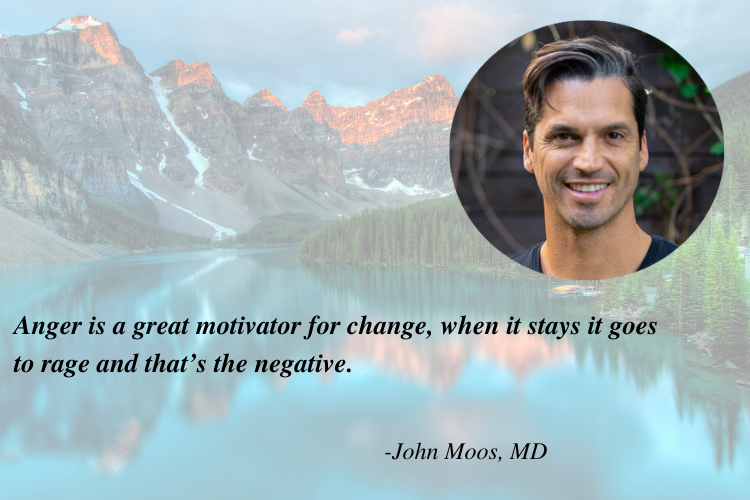
His mission is to address psychospiritual traumas before they escalate into desperate conditions.
Psychotherapy’s impact cannot keep up with the rapid increase in mental health issues. And Big Pharma’s medications for depression and anxiety were not intended for long-term use but as temporary support.
Pain is often our biggest motivator, and this frustration with current treatment options could encourage greater awareness and self-education among the general public.
Recognizing that being a medical doctor or therapist does not automatically translate to expertise in psychedelics, John advocates for a diverse group of professionals in the psychedelic field.
After all, healing is not a linear path but a multifaceted journey. Numerous routes can lead to personal growth and transformation. By embracing various approaches, we can collectively benefit from the power of psychedelics.
Talking Psychedelics: Brandon Crockett – Mormon on Mushrooms
Brandon Crockett, the author of “Mormon on Mushrooms,” experienced an intriguing journey of self-discovery thanks to psychedelic mushrooms.
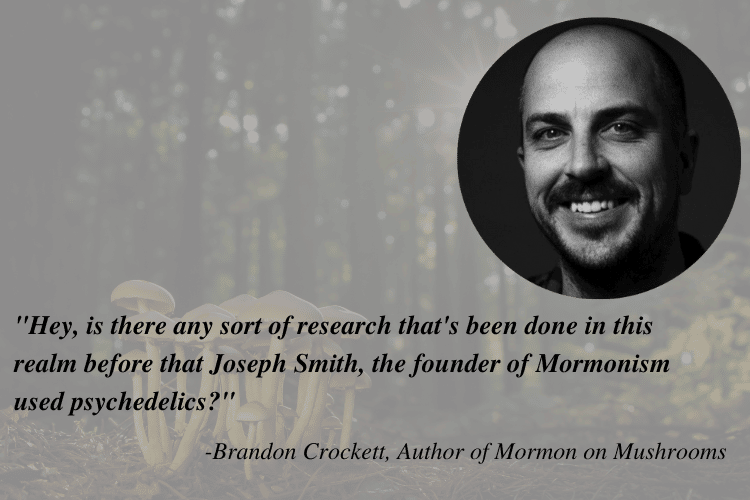
Raised as a devout Mormon, Brandon adhered to religious practices despite harboring doubts. While still part of the Mormon community, he started exploring meditation and mystical experiences until one day he stumbled upon a video by Terence McKenna.
Noticing similarities in the language used to describe psychedelic experiences and divine revelations, his curiosity was piqued. This brought him to a paper by Robert Beckstead that discussed the potential connections between psychedelics and the origins of the Mormon faith.
Brandon’s first high-dose psychedelic trip with mushrooms was transformative and deeply spiritual. And it essentially altered the course of his life.
Acknowledging the challenges of transitioning from a religious background to exploring psychedelics, Brandon advises seeking therapeutic support or connecting with like-minded communities during this process.
Talking Psychedelics: Lilli Steingraeber of ProviThor
Lilli Steingraeber owns ProviThor, a smart shop based in the Netherlands that sells psychedelic truffles and mushroom cultivation supplies. Unlike traditional smart shops, ProviThor aims to offer a more health-oriented approach.
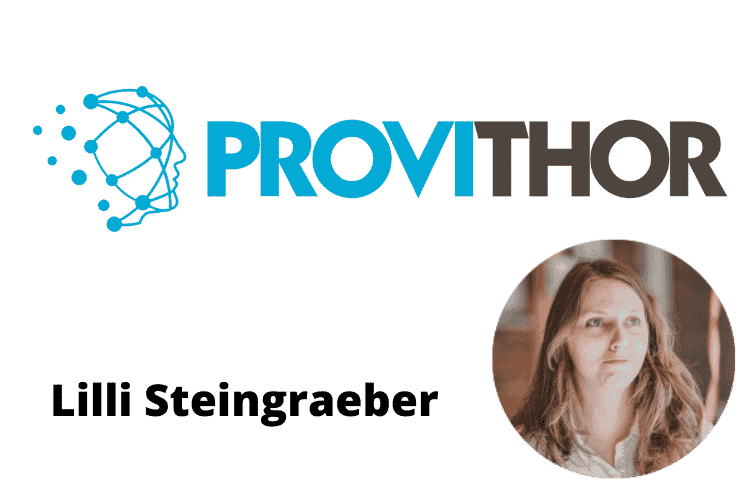
Originally from Germany, Lilli’s journey with microdosing inspired her to start her business in 2019. While she was initially met with skepticism from friends and family, their perceptions changed after experiencing the positive effects themselves.
ProviThor’s primary goal is to make microdosing accessible and less intimidating. They mainly cater to customers all over Europe, with Germany being a significant market. The shop operates within legal boundaries thanks to the unique legal status of magic truffles in the Netherlands.
Talking Psychedelics: Eva Césarová of PSYRES
Eva Césarová, from the Czech Republic, is the co-founder of CZEPS (Czech Psychedelic Society) and a media representative of psychedelic research at the National Institute of Mental Health (NIMH).

Having initially tried psychedelics recreationally, she later discovered their healing potential. This made her shift her academic focus from media and marketing to addictions. She also pursued a Ph.D. on the ritual use of psychedelics in the Czech context.
Eva is also involved with PSYRES (Psychedelic Research Foundation), a foundation supporting Czech psychedelic research. PSYRES currently funds medicinal research involving ketamine, psilocybin, and midazolam. It also conducts anthropological studies on the neurobiology of ayahuasca used in traditional settings — additionally, PSYRES advocates for psychedelic research legislation.
Advancing psychedelic research and destigmatization efforts is a collective journey. And Eva emphasizes the global relevance of future regulatory changes.
Talking Psychedelics: Antonio Sebastian of ALICE Cybin Integration
Antonio Sebastian is the entrepreneur behind A.L.I.C.E. Cybin Integration, an organization that helps people use psilocybin mushrooms for therapeutic purposes and personal growth.
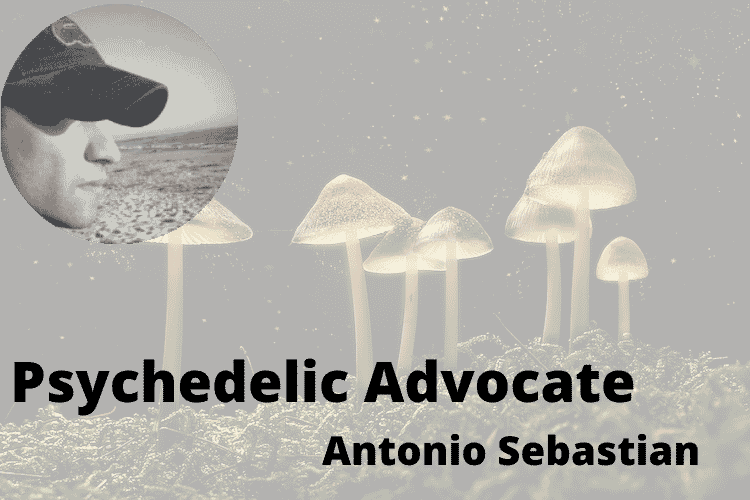
After going through a tough time at the age of nine, his great-grandmother introduced him to mushrooms in Puerto Rico. This profound experience led him to uncover fungi’s healing potential.
Throughout his life, he explored various fields, including psychology, sociology, music, and entertainment. However, he eventually reconnected with psychedelics.
Antonio emphasizes the importance of treating every individual as unique. Likewise, mushroom species should be seen as unique, as they affect our bodies and minds differently.
To put it in Antonio’s words: “There are some mushrooms you might vibe with and some with which you won’t.”
If each species helps with different ailments, speaking in general terms such as “microdosing” or “psilocybin” might not be the best choice.
Talking Psychedelics: Spencer Hawkswell of TheraPsil
Next up, we have Spencer Hawkswell from TheraPsil, a non-profit coalition of patients and healthcare practitioners in Canada.
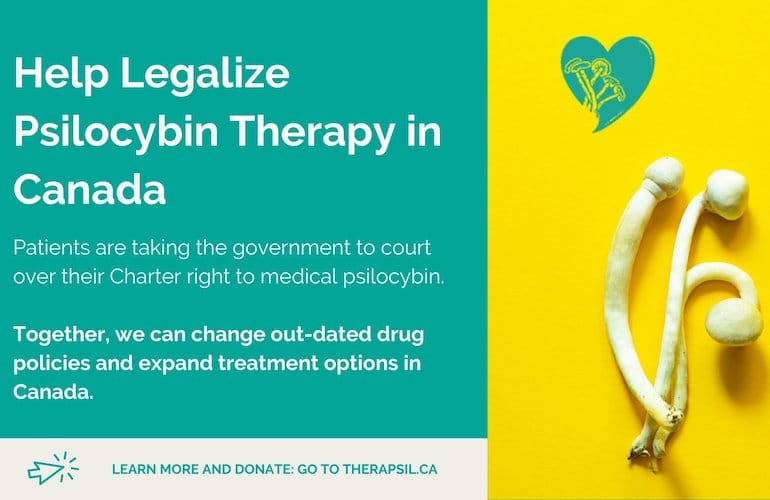
Their mission is straightforward: “To accomplish the realization of Canadian rights to their medicine.”
More specifically, the right to their psilocybin medicine and therapy.
TheraPsil focuses on a patient-centered approach. It supports patients and healthcare practitioners and challenges current laws that do not align with the Charter of Rights and Freedoms.
They help patients obtain Section 56 exceptions and Special Access Program requests for psilocybin, and they understand the importance of pharmaceutical and homegrown access.
Spencer believes that democracy works, but it requires collective action and perseverance. That’s why he encourages people to do their part. To him, the single most effective way to get psychedelics legalized is for Canadians to show elected politicians that this is important to them.
Talking Psychedelics: Floris Wolswijk of Blossom Analysis
Floris Wolswijk is the co-founder of Blossom Analysis.

His interest in psychedelics stems from his experiences with them over the past ten years. They are entertaining and educational, allowing him to explore new perspectives and learn more about himself. With a background in psychology and self-taught knowledge of database management, Floris was drawn to analyzing psychedelic research data and creating a platform to collect relevant information.
- That is how Blossom Analysis was created.
- What is the mission? To make psychedelic research more accessible.
- Why? To provide regulatory and investment decision-makers with a centralized resource for information.
- How will they do this? By creating different searchable databases and customized reports.
The small team of two co-founders and occasional consultants aims to remain focused on the informational side of things.
Their target audience includes scientists seeking to keep up with the latest research and investors looking for potential opportunities.
Talking Psychedelics: Ziv Shafir of The LA Psychedelic Salon
Ziv Shafir founded the L.A. Psychedelic Salon and is a Stanford Graduate School of Business healthcare strategy instructor.
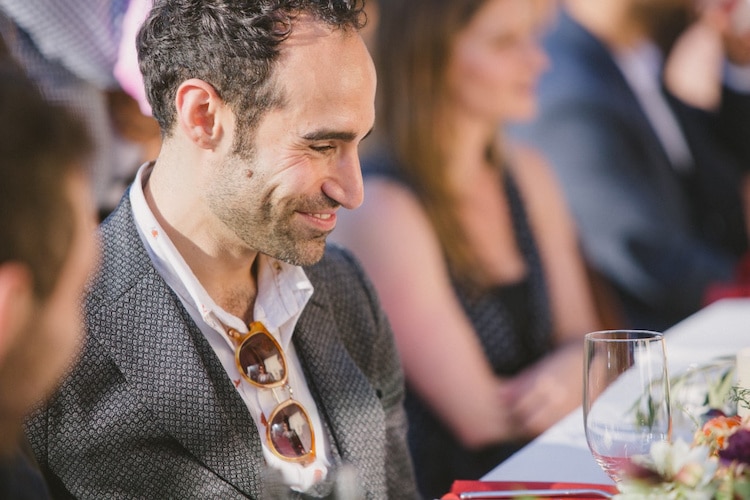
His search for alternative treatments for depression helped him discover the world of psychedelics. This later led him to create the L.A. Psychedelic Salon, where he facilitates discussions on psychedelics.
Ziv’s pharma background, in combination with his expertise in psychedelics and mental wellness, gives him an edge.
For example, whereas some companies want to diminish the typical psychedelic effects, Ziv knows that experiencing them is the exact point.
Nonetheless, he believes pharmaceutical companies will play a big role in the industry’s growth. And he highlights the distinction between above-ground (regulated) and underground (informal) markets.
Regarding decriminalization, Ziv acknowledges potential benefits for the informal market, but he emphasizes the difference between decriminalization and full legalization in terms of commercial potential.
Talking Psychedelics: Dr Rick Barnett
Dr. Rick Barnett, a clinical psychologist and licensed drug and alcohol counsellor, co-founded the Psychedelic Society of Vermont in 2021. He has undergone training in the Psychedelic Research and Therapy Program at the California Institute of Integral Studies. Dr. Barnett incorporates ketamine-assisted therapy into his private practice, recognizing its healing potential.
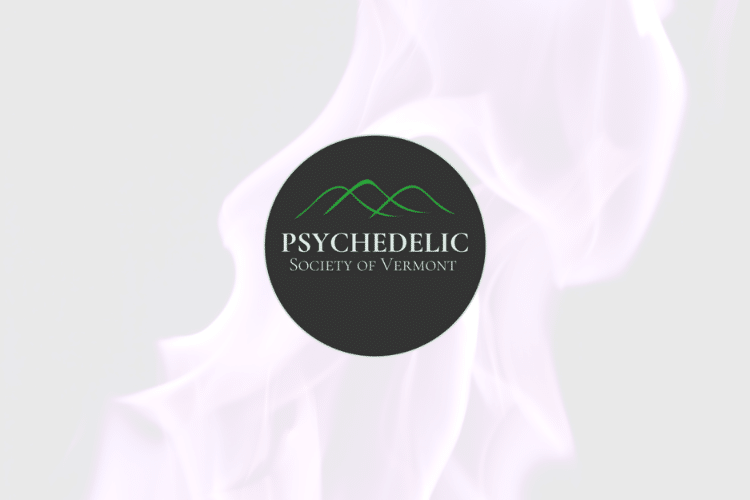
To Dr. Barnett, the essence of the Psychedelic Society revolves around community building. These societies comprise a wide range of people, and the general idea is to discuss the research and benefits while exploring the spiritual aspects.
Dr. Barnett hopes that indigenous cultures retain a strong voice in the industry’s growth. He expects both expansion and contraction in the psychedelic industry. And he urges listening to those deeply involved in the field, such as shamans and trip sitters.
Talking Psychedelics: Bea Chan of Sisters in Psychedelics
Noticing a gender imbalance in the psychedelic space, Bea Chan set out to bring more diversity to the table.
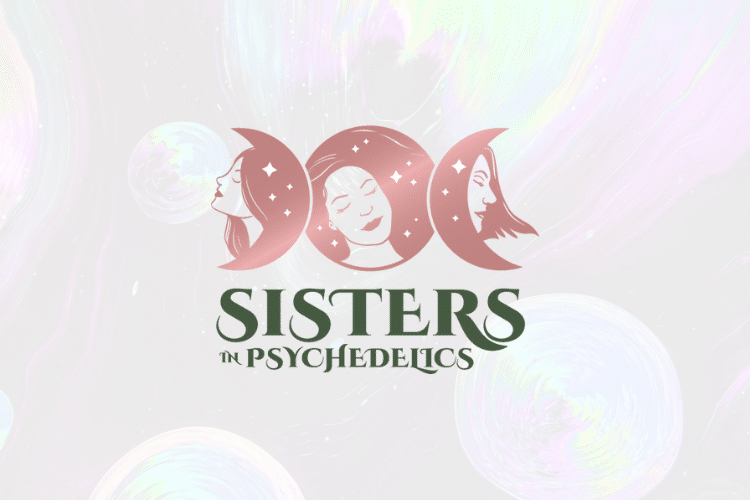
To put it in her words:
“If I don’t see somebody like me that I look up to, I need to become that person so other
people can see that there is diversity, that we can take up space, and that we can feel safe.”
That’s why she co-founded “Sisters in Psychedelics.” The organization focuses on creating a safe and supportive environment for female-identifying people to explore psychedelics.
Bea is dedicated to building a strong community and addressing the knowledge gap about the impact of psychedelics on women’s mental wellness and health.
Bea also operates “AKITA” (‘A Kick In The @ss’), a marketing agency catering to psychedelic coaches, offering services like website design, branding, and funnel building. With AKITA, she seeks to empower women in the industry so that more female psychedelic coaches can succeed.
Talking Psychedelics: Moshe Jacobson of PsyAtlanta
Meet Moshe Jacobson, a prominent figure in the psychedelics industry based in Atlanta, Georgia.
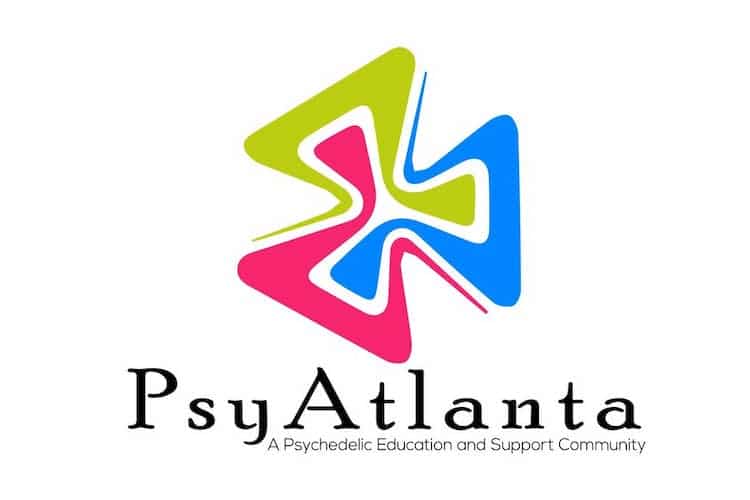
After leaving his job completely in 2019, Moshe went full-time with psychedelic integration coaching and facilitated journeys.
Passionate about everything psychedelics and mental wellness, he is a founding member of the Association of Entheogenic Practitioners and the founder of EntheoCoach, a platform that helps people achieve personal transformation through psychedelics.
Additionally, Moshe manages PsyAtlanta, an organization focused on creating community through meetups centered around psychedelic healing. PsyAtlanta currently has nearly 2,500 members.
Talking Psychedelics: Paul Lewin of the Cannabis and Psychedelics Law Group LLP
Paul Lewin of the Cannabis and Psychedelics Law Group LLP in Toronto has actively navigated the psychedelic legal landscape.
While recent changes like granting section 56 exemptions and expanding the special access program were huge steps forward, Paul expects progress to be slow and intermittent.
Because the challenges in regulating psychedelics are rooted in lingering fear and the government treating them like any other drug, future legal changes will mostly be driven by court cases and advocacy efforts. The TheraPsil case is one good example of this (see Spencer Hawkswell’s interview above.)
Recognizing their immense power, Paul suggests that access to psychedelics should not be limited to only severely ill patients.
He also highlights that freedom of thought is a foundational right and that psychedelics are an important tool for exercising this right. After all, they help us think in new ways and see the world and ourselves through different eyes.
Talking Psychedelics: Luc van Poelje of Psychedelic Insights
After a transformative experience with Psilocybin and Ayahuasca in 2013, Luc van Poelje founded Psychedelic Insights. His organization offers trip guides to help clients navigate altered states of consciousness.
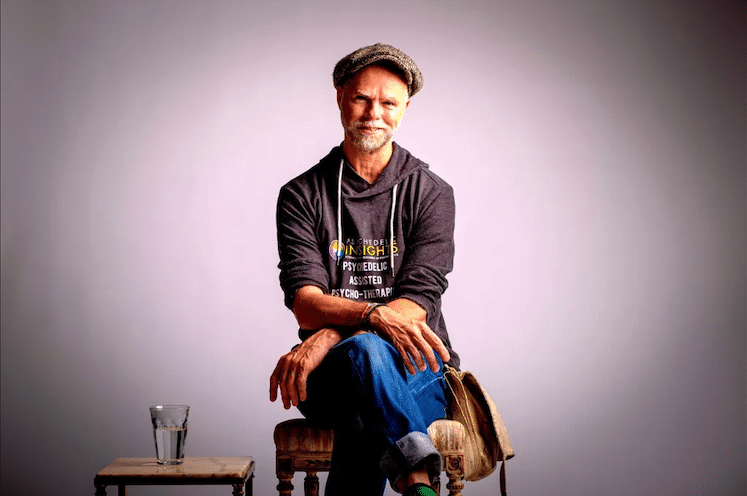
What is Luc’s goal? Simple: To accelerate the tipping point of human consciousness, one person at a time.
Besides having helped over 300 people, in 2021, Psychedelic Insights was asked to design a special truffle protocol for nine former military members suffering from PTSD. The remarkable results showed a significant decline in PTSD and anxiety, even months after the sessions.
Looking ahead, Luc envisions collaborating with local universities to do research. He also expects that we will use psilocybin mushrooms and truffles to address end-of-life distress and explore the anti-inflammatory properties of psychedelics for conditions like ALS, cancer, and MS.
Reminding us that psychedelics remain illegal for political reasons, not scientific ones, he advocates for more open-mindedness to liberate them from their current legal restrictions.
Psychedelics and Mental Wellness: Conclusion
As we said at the outset, making an educated decision regarding psychedelics involves knowing the right questions to ask and what to look for. We hope that as you have reached the end of the Psychedelics and Mental Wellness Guide, you have a better idea of:
- The potential role of psychedelics in managing depression and anxiety.
- The legality and enforcement attitudes towards them.
- The importance of set and setting with the larger ceremony and integration process.
- How you can experience a psychedelic state without drugs.
- How industry-leading figures see the potential benefits of psychedelics in managing mental health.
More Frshminds Psychedelic Guides
Be sure to check out all of our guides
- The Ultimate Psilocybin Retreat Center Guide
- The Ultimate Ayahuasca Retreat Guide
- Frshminds’ Guide To Ketamine Clinics

Comments